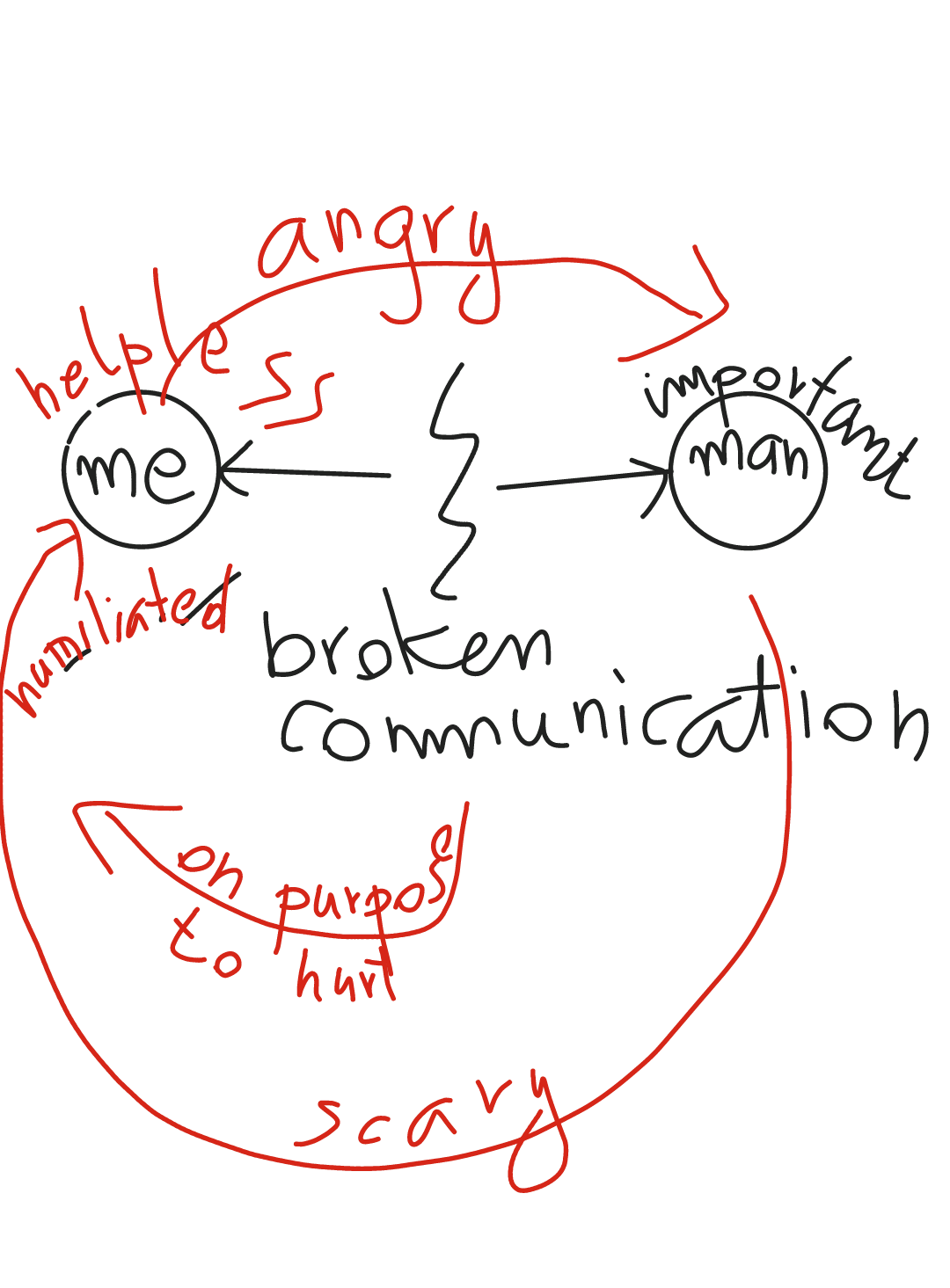Why people react with irrational emotions
Posted on May 8th, 2018
Cecilia just got quite emotionally destroyed. The guy she's been dating for a month now didn't reply her text message for one hour. Her friends are quite concerned about her and tell her that she's being too controlling, too clingy and too desperate to be with someone. What's more they say she should improve her self confidence if she immediately thinks that someone's dumping her if they don't reply for one hour. One hour!
But what's really going on in Cecilia's head? Did she really expect her date to reply each time within 5 minutes? Doesn't she realize how that makes the other person feel? Is she perhaps so selfish and self centered to expect such ridiculous things?
Let's move back in time when Cecilia was 3 years old. Her mother is crying in the kitchen saying that her husband doesn't care about her. Her dad is lying comfortably in another room sipping his beer and watching sports on TV. Well nothing special, right? Which marriage is perfect? But what does Cecilia think?
She thinks: my mother is so sad. Humiliated. Because she's stuck with a man who doesn't value her. And she's with my dad because of me. Cecilia feels her mother's sadness and humiliation as if they were her own. She also feels guilty for the situation, at the same time she doesn't see how she could make up for forcing her parents to be together. She doesn't know how to care for her mother like her father would. Cecilia feels helpless.
Cecilia doesn't know their parents had a fight and that her father is now very dedicated to sulking at her mother. She only sees that her father is ostentatiously ignoring her mother in order to hurt her. That makes her angry. Really angry. "I hate my dad!" she thinks. She wants to go to her dad and confront him, but she also remembers well his fury when she behaved too loud and the pain when he hit her. She's actually scared of him. She does not understand why he is ignoring her too.
What happens there. Cecilia is experiencing lack of contact with a man whose appreciation is very important for her, with a lot of accompanying emotions. She experiences both her and her mother's separation as very painful and confusing. The brain creates the following model of the situation:

Later when Cecilia is 26 and her date does not reply her brain sees this:

And next, it's looking for any model that fits. It finds the model from when she was 3 years old:

Now the brain will fire off all the emotions that were present in that model. Suddenly Cecilia will feel scared, hurt, guilty, humiliated and angry, and on top of it stucked and helpless - all at the same time.
Because the brain always tries to make sense of reality it will start interpreting these emotions. Cecilia will be convinced that she feels scared because that man has bad intentions. She will feel hurt because he must have done something hurtful. What did he do? He didn't reply. On purpose, because the awareness of an evil intention is also present in the model. She will feel humiliated. By what? Maybe by him not replying. And guilty. Of what? Of causing it, somehow. She'll be scared. What could she be scared of? Maybe that he will dump her. Suddenly there's a model of reality, a paranoid model, but a model that fits 100% the emotions. The brain says: that must be true or I'm crazy.
Would being more self confident help Cecilia in the situation with her father hurting her mother? Not really. Could she have been just more chilled as a 3 year old and ignore the fact that her only life support system is breaking, and the dearest people are hurting each other in front of her eyes? Probably not. That's why the friends' advice doesn't really work. The initial problem was not about not being good enough for someone. It was about being emotionally dragged into something that should have never been her concern.
What is the solution?
What has been bringing some effects for me, was to mentally go into that past memory, replay it in my head from the 1st person perspective, with all accompanying emotions and then have the therapist bringing the objective look at the situation, telling me and my parents things that would have helped if I have heard them back then. Whenever I feel the relief as the small myself, I try to record which sentence caused the relief. Later we discuss with the therapist why this sentence brought relief and we try to find a nowadays-appropriate version of that sentence, or an object, another memory, that would remind me that new way of looking at the situation that is happening in the present. So what I need to do is to memorize the connection between the same old diagram:

The sentence that helped me was "She should not be dragged into this. This is something between you two". The new model is:

As visible here it is important to dig to the situation that is actually the source of the disturbing emotions, and there is no one advice that fits everyone.
